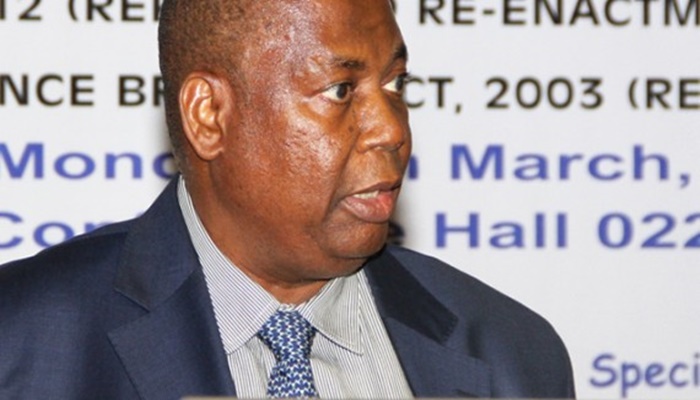
Managing Director of the Nigeria Deposit Insurance Corporation (NDIC), Alhaji Umaru Ibrahim disclosed on Friday that over ₦8.25 billion has been paid to 442,999 depositors of liquidated banks as insured amount since the agency was established in 1989.
Ibrahim, who made the disclosure at a media briefing to mark the 30th anniversary of NDIC also revealed that over ₦2.97 billion has been disbursed to 83,415 depositors of closed Microfinance banks (MFBs), while over ₦70.53 million has been paid to 869 depositors of closed Primary Mortgage Banks (PMBs).
NDIC boss who was represented at the event by the Director, Communications and Public Affairs Unit of NDIC, Mr. Sunday Oluyemi said the corporation has twice increased the maximum deposit insurance coverage, from ₦50,000 per depositor of deposit money bank (DMB) at inception to N200,000 in 2006 and finally N500,000 in 2010.
“Similarly, maximum coverage per depositor of PMBs/MFBs was increased from N100, 000 in 2006 to N200,000 in 2010. Coverage per depositor per PMB had since been increased to N500,000 to reflect the increased deposits structure in the sub-sector and to stimulate mortgage savings.
“Since its inception, the Corporation successfully responded to economic realities and yearnings of depositors by periodically increasing the maximum Deposit Insurance Coverage (DIC) to enhance the confidence of the public in the Nigerian financial system. On average, this is done every five years in line with Global best practice.
“The DIC covers all deposit-taking financial institutions licensed by the CBN which include Deposit Money Banks (DMBs), MFBs, PMBs, Non-Interest Banks (NIBs) and subscribers of Mobile Money Operators (MMOs).
“NDIC currently provides Deposit Insurance cover to 27 DMBs, 918 MFBs, 34 PMBs and two NIBs
“The Corporation is identified with ensuring that depositors of liquidated banks suffered little loss or pain. Between 1994 to date, 53 DMBs, 325 MFBs and 51 PMBs were put under liquidation without disruption to the nation’s payment system”, he revealed.
On fears in various quarters that some banks in Nigeria are weak and wobbly, the NDIC boss dismissed the claim, explaining that Nigerian banks are not only resilient but financially sound.
He assured that the corporation will continually collaborate with the Central Bank of Nigeria to closely monitor the banks.
“The NDIC collaborates with the CBN to ensure that the Institutions remain healthy at all times and/or where there are problems, they are detected and addressed promptly. Supervision guarantees stability, integrity, soundness and efficiency in the banking system and is employed by NDIC for the protection of depositors’ interest. The supervisory activities of the Corporation are carried out through a combination of On-site Examination and Off-site Surveillance. The collaboration between CBN and NDIC over the years has reduced the bank examination cycle, enhanced monetary policy; promoted safe and sound banking practices as well as assist in resolving Troubled Financial Institutions.
“NDIC and CBN proactively respond to developments and challenges in banking operations through appropriate policy framework which have produced great results in the interest of the banking industry”, he explained.
Ibrahim further noted that the Corporation adopted the bridge bank mechanism to resolve the failure of three DMBs namely Afribank, Spring Bank and BankPHB in 2011. “Similarly, in 2018, that mechanism was used to resolve the failure of Skye Bank Plc. Indeed, the merits of the bridge bank to the nation’s economy are numerous.
The success recorded by the Corporation in this area include: adoption of risk-based supervision framework, development of framework for early warning signals to detect problem banks, development of framework for the identification and measurement of Systemically Important Banks (SIBs) and articulation of a framework for the provision of financial and technical assistance to deserving insured institutions,” he said.






